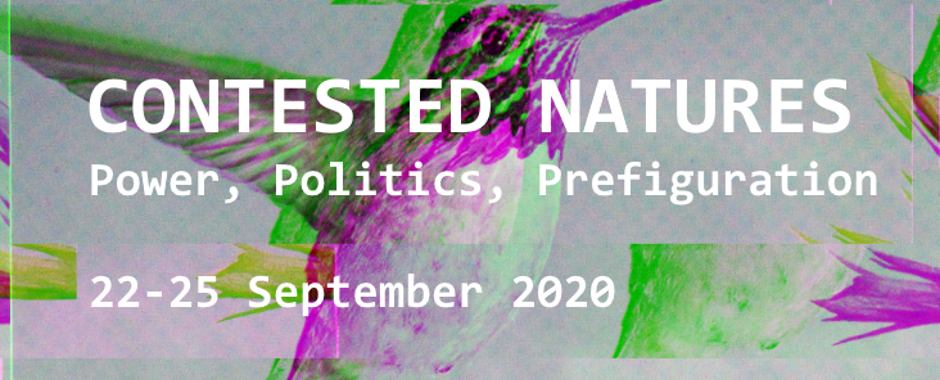
- This event has passed.
Contested Natures: POLLEN 2020 conference
Contested Natures: Power, Possibility, Prefiguration
Third Biennial Conference of the Political Ecology Network (POLLEN)
22-25 September 2020
Brighton, UK
#POLLEN20

The Third Biennial Conference of the Political Ecology Network, Contested Natures: Power, Politics, Prefiguration, was held online from 22 – 25 September 2020.
Video: Keynote sessions
Use the playlist below to browse video of the keynote sessions at the conference.
Programme
You can now view the programme for POLLEN20 at a glance. Most sessions are only open to registered participants.
Keynote sessions
KEYNOTE 1: POLITICAL ECOLOGIES OF COVID-19
22 September at 16.00-18.00 BST (UK time), Hummingbird Stage
Roundtable with Melissa Leach, Patricia Lopez and Abigail Neely, Jonathan Thurston, Claudia Puerta Silva, Jeff Rose and Rahul Muralidharan
Moderators: Dr Libby Lunstrum and Dr Amber Huff
KEYNOTE 2: ON BLACK ECOLOGIES
23 September at 16.00-18.00 BST (UK time), Hummingbird Stage
Roundtable with Danielle Purifoy, Jillean McCommons, Justin Hosbey, Hilda Lloréns and Carlos G. García-Quijano
Chair: JT Roane
KEYNOTE 3: CONSERVATION FUTURES
24 September at 9.00-11.00 BST (UK time), Hummingbird Stage
Panel with Carina Wyborn, Mathew Bukhi Mabele, Anh Vu and Hannah Dickinson
Chairs: Rosaleen Duffy and George Iordăchescu
KEYNOTE 4: TROUBLING NATURE AND POLITICAL ECOLOGY: FEMINISTS IN THE CAPITALOCENE
24 September at 16.30-18.30 BST (UK time), Hummingbird Stage
Roundtable with Helene Ahlborg, Seema Arora-Jonsson, Wendy Harcourt, Jessica Lehman and Sherilyn MacGregor.
Chairs: Rebecca Elmhirst and Andrea Nightingale
Background to POLLEN2020
POLLEN2020 was the centrepiece of the STEPS Centre’s annual theme on Natures.
Nature is all around us, but there are many ways of seeing different kinds of ‘natures’, and many efforts to involve it in forms of control or domination. How is talk of crisis shaping nature and people’s views of it? How can colonial forms of knowledge, technology and power be challenged, and what might it mean to decolonize the study of environmental change? What do alternatives look like, and how can we explore, nurture, imagine and live the relationships we might want for the future?
The event was co-organized by the ESRC STEPS Centre (IDS/SPRU, University of Sussex) and the Political Ecology Network (POLLEN) Secretariat (currently based at the University of Copenhagen 2019 – 2021).
The conference is co-hosted by Radical Futures at the University of Brighton and the Institute of Development Studies.